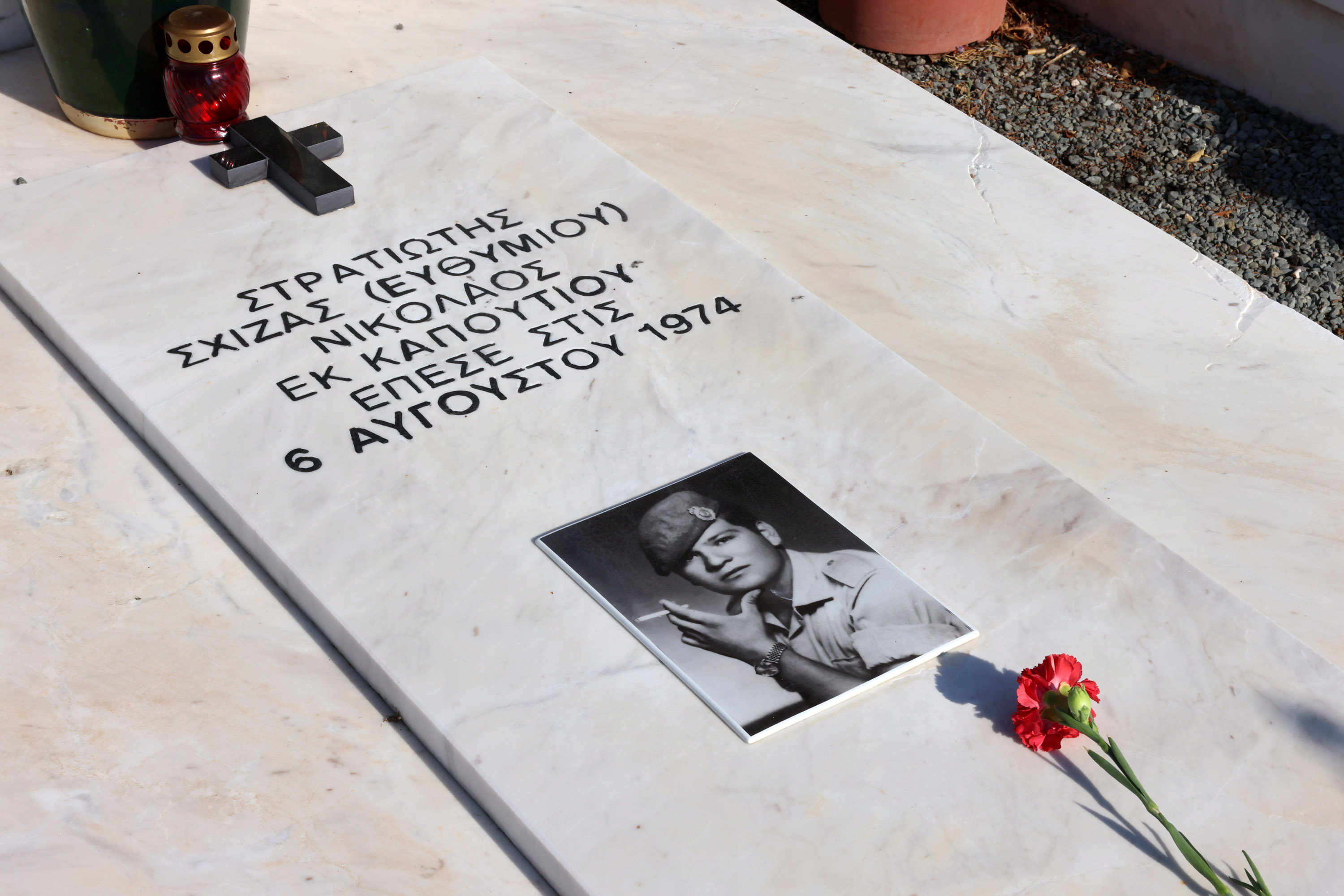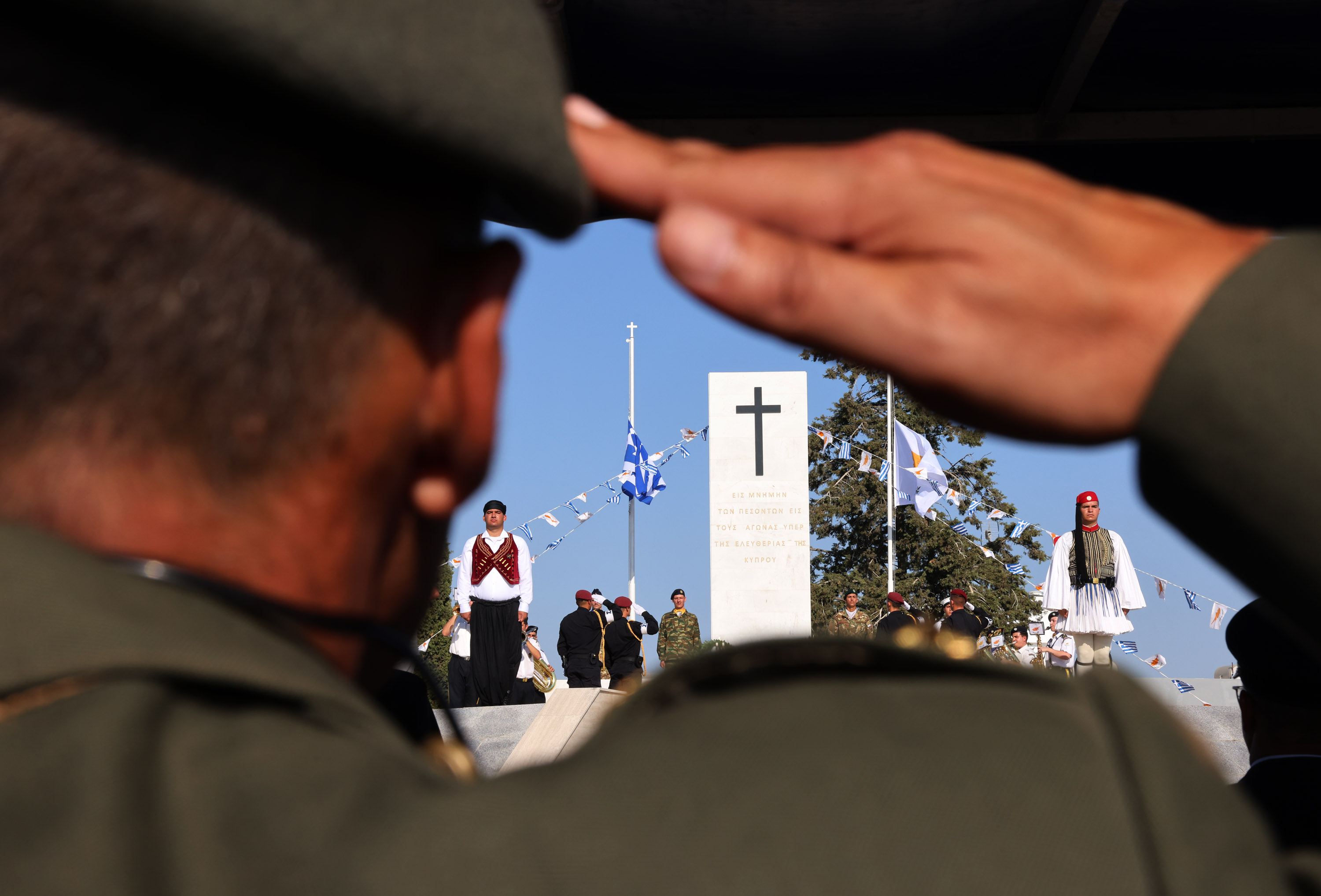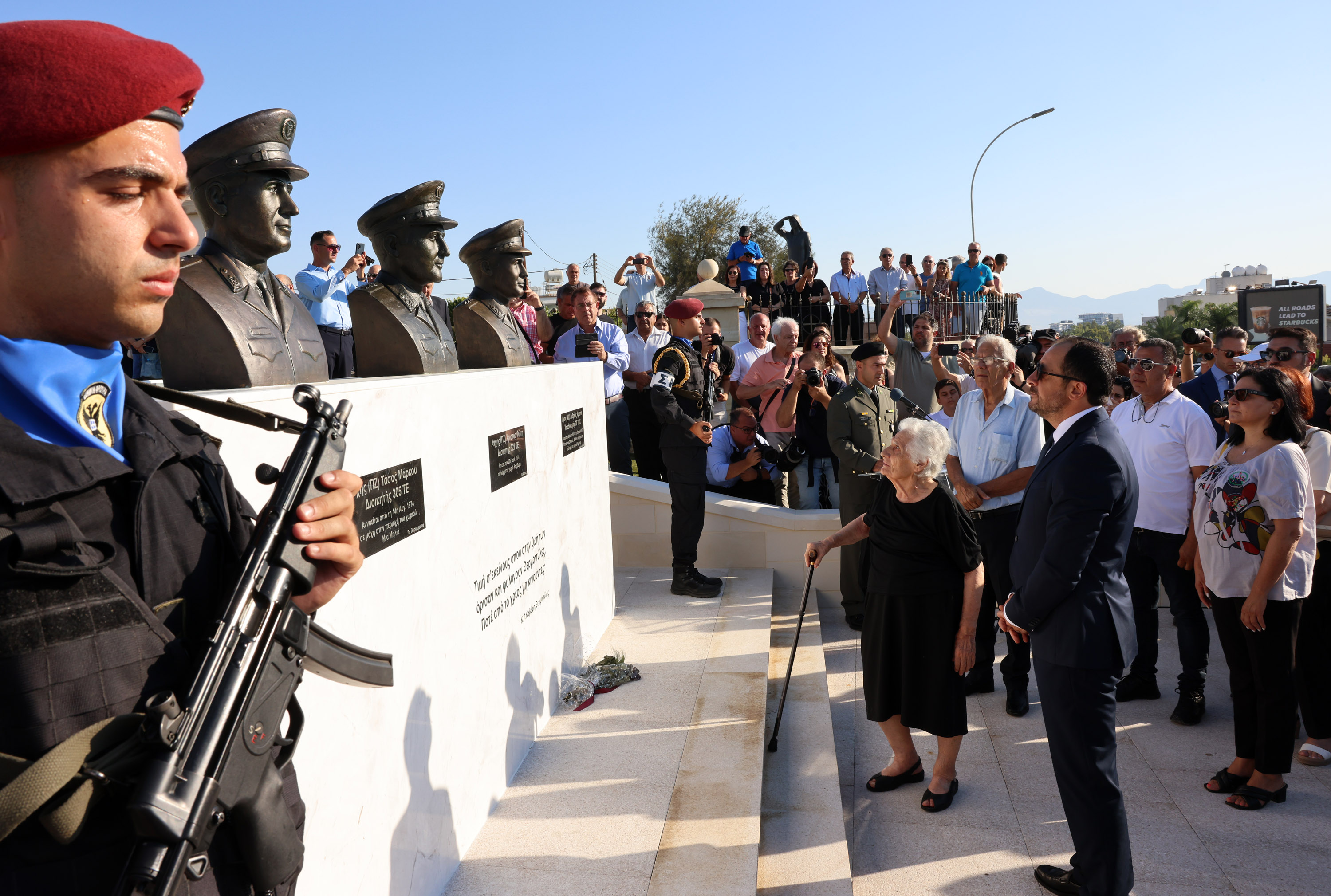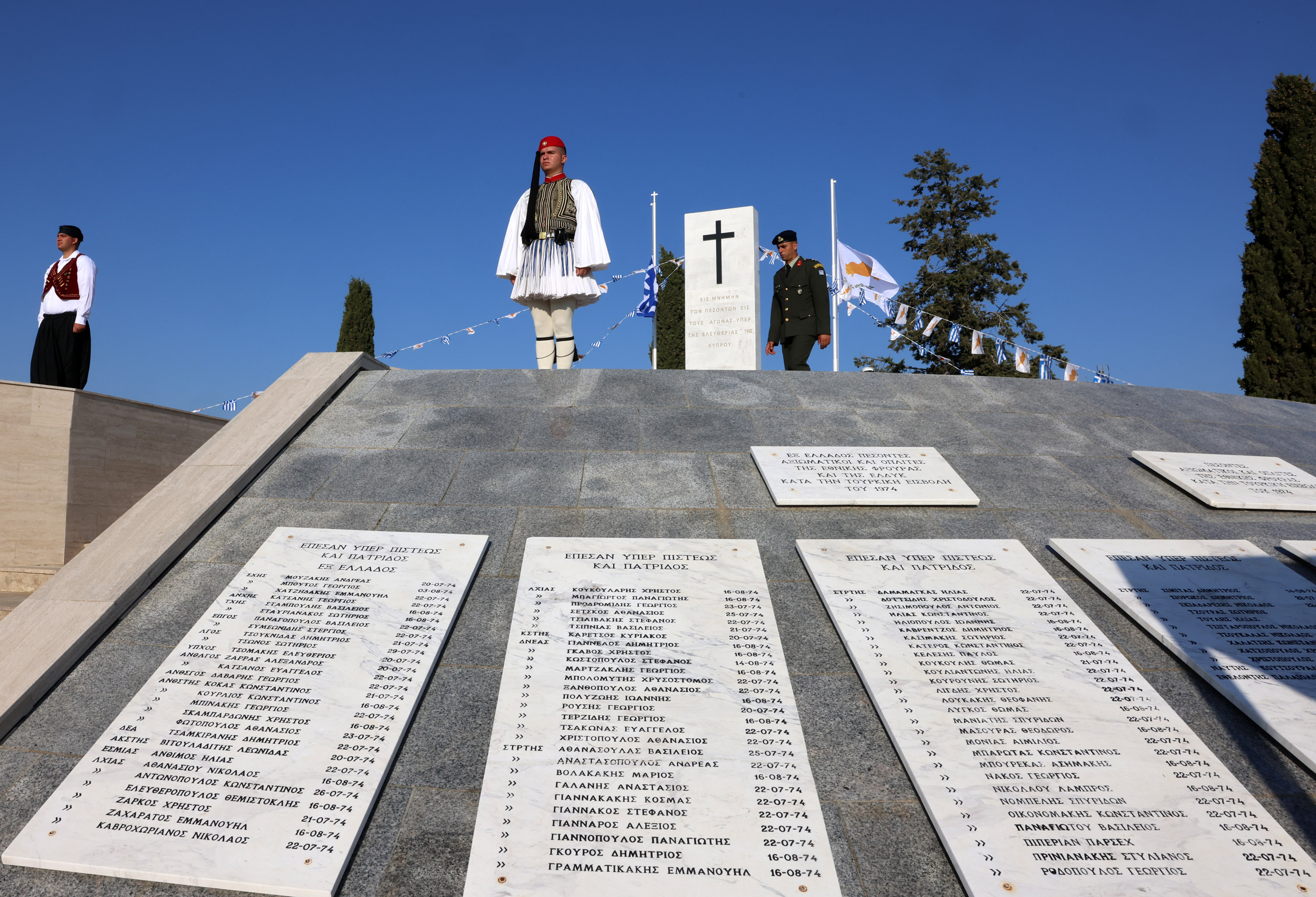Air raid sirens wailed across Cyprus at dawn on Saturday as Greek Cypriots mourned, and Turkish Cypriots celebrated 50 years since the Turkish invasion.
“This is a difficult day for everyone,” President Nikos Christodoulides said during a memorial service for the fallen in Kokkinotrimithia.
“It has been 50 years, half a century since the Turkish invasion. Half a century of occupation, half a century under which we are living through the consequences of the barbaric Turkish invasion.”
The sirens blared at 5:30am, marking the time which the invasion began in 1974.
“It was a betrayal of Cyprus and so many kids were lost. It wasn’t just my son, it was many,” said Loukas Alexandrou, 90, as he tended the grave of his son at the military cemetery, the Tomb of Makedonitissa, in Nicosia.
Christodoulides early on Saturday also unveiled busts for Christos Fotis, Tasos Markos and Andreas Arrestis, whom he called heroes during a memorial ceremony at the Tomb of Makedonitissa .
Turkish President Tayyip Erdogan arrived in the north and Greek Prime Minister Kyriakos Mitsotakis was due to attend separate events in the Republic, with each president showing their support for the respective side.
Though relations have recently thawed between Turkey and Greece, Cyprus remains an emotional trigger.
In the Republic, church memorial services mourned more than 3,000 dead who were killed during the invasion. Mitsotakis was due to attend an event on Saturday evening marking what Greek Cypriots call a “black anniversary”.
He posted an image of a blood-stained map of Cyprus on his LinkedIn page with the words “Half a century since the national tragedy of Cyprus”.
A protest against the occupation unfolded across the buffer zone, with Greek Cypriots and Turkish Cypriots seeking to send out a message against segregation. They stressed that any solution which divides people into zones “establishes a new apartheid on the island which cannot be accepted.”
In the north there was jubilation, where Erdogan observed a celebratory military parade in northern Nicosia.
Turkey describes 1974 as a “peace and freedom operation”.
“The Cyprus Peace Operation saved Turkish Cypriots from cruelty and brought them to freedom,” Erdogan said, criticising the south for having a “spoiled mentality” and seeing itself as the sole ruler of Cyprus.
Christodoulides described it as sombre day of reflection and remembrance of the dead.
No matter what Erdogan says or does, “Turkey continues to be responsible for violating human rights and international law.”




He added that although the Republic continues to stand on its feet as a result of sacrifices “we have not accomplished our mission” which is to solve the Cyprus problem, he said.
“If we want to send a message on this tragic anniversary, truly honouring those who sacrificed themselves so that we can exist here today, we have to do everything possible to reunify our country.”
Cyprus’ presidency published a video marking 50 years of the Turkish invasion with the slogan ‘Enough’ in Greek, Turkish and English.
It features wives and mothers of soldiers desperately searching for news of the missing, as well as scenes of explosions amid heavy gunfire.
A narrative of a captured soldier is also heard, amid shots of swathes of individuals with their hands behind their back, contrasted with scenes of women holding up pictures of their missing loved ones.
The video ends with a speech Christodoulides made before the EU, saying all Cypriots deserve the same fundamental rights as every other EU citizen.
50 χρόνια Τουρκικής Κατοχής.
— Προεδρία της ΚΔ (@CYpresidency) July 20, 2024
Φτάνει. Yeter. Enough. pic.twitter.com/5ZS8R5MHc2
Turkey’s invasion took more than a third of the island and expelled more than 160,000 Greek Cypriots to the south.
Reunification talks collapsed in 2017 and have been at a stalemate since.
Christodoulides said announcements were to be expected by the UN secretary-general soon, and he had received messages which were in a “positive direction” over the matter.
Earlier in the day he unveiled a bust for Christos Fotis, Tasos Markos and Andreas Arrestis, whom he called heroes during a memorial ceremony at the Tomb of Makedonitissa.
The three died in the line of fire as they fought against the 1974 Turkish invasion.







Click here to change your cookie preferences